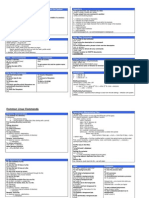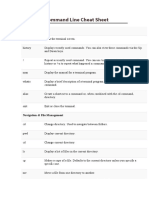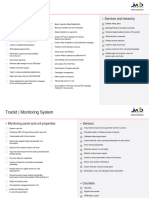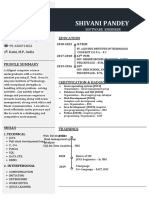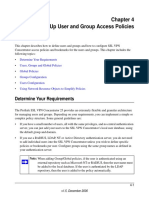0% found this document useful (0 votes)
30 views36 pagesTechnology Essentials1 Linux
The document lists Linux commands and their descriptions. It provides examples of how to use each command. Some key commands covered include ls to list files, cd to change directories, cp to copy files, rm to remove files, mkdir to create directories, and grep to search files for text. Character shortcuts and wildcards are also described, such as / for directory separator, * to represent one or more characters, and [] for ranges. Common directories in the Linux file system are outlined, including /root, /home, /bin, /etc, and others.
Uploaded by
aligamergames999Copyright
© © All Rights Reserved
We take content rights seriously. If you suspect this is your content, claim it here.
Available Formats
Download as PDF, TXT or read online on Scribd
0% found this document useful (0 votes)
30 views36 pagesTechnology Essentials1 Linux
The document lists Linux commands and their descriptions. It provides examples of how to use each command. Some key commands covered include ls to list files, cd to change directories, cp to copy files, rm to remove files, mkdir to create directories, and grep to search files for text. Character shortcuts and wildcards are also described, such as / for directory separator, * to represent one or more characters, and [] for ranges. Common directories in the Linux file system are outlined, including /root, /home, /bin, /etc, and others.
Uploaded by
aligamergames999Copyright
© © All Rights Reserved
We take content rights seriously. If you suspect this is your content, claim it here.
Available Formats
Download as PDF, TXT or read online on Scribd
/ 36








